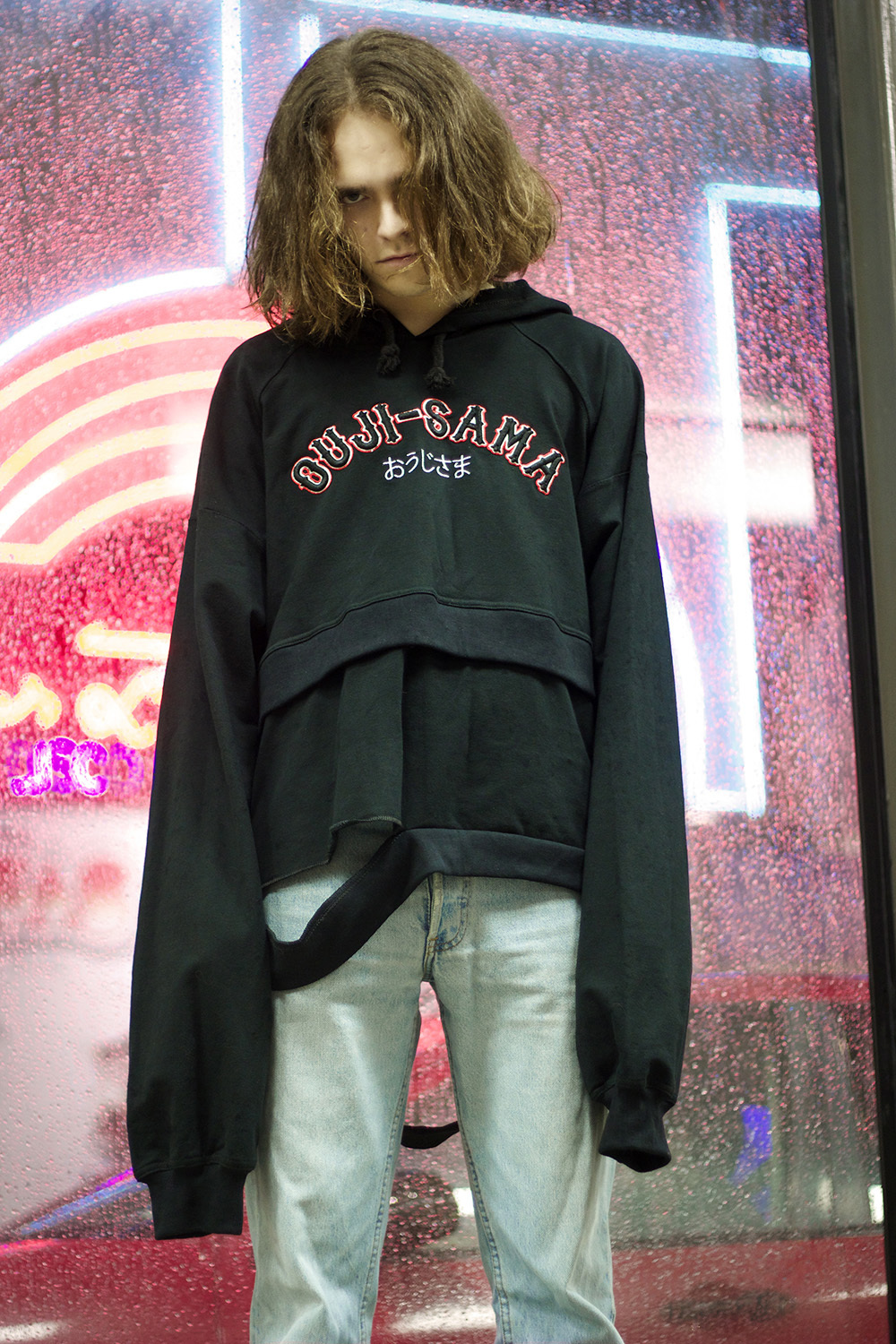Kevin Rosa García, 20
Where were you born? I was born in Tijuana, B.C., and currently live in Rosarito.
What do you do? I play the guitar in two different bands. I’m very passionate about playing the guitar.
What prejudices have you encountered in your profession? Mostly [it’s been difficult] trying to find the right musicians who have the same vision and who can commit as much as I do.
In your opinion, why is diversity so important for creativity? [I always keep my] mind open to different genres and ideas in order to create my own style and stand out from others.
What’s your responsibility to the younger talent who will [follow in your footsteps]? [I think it’s important to] support the local scene so that new musicians can continue creating new projects and representing our city.
At what point does a hobby become a profession? Once your projects begin to show results and generate income.
What’s the best part about living by the US border? [Being able to analyze] the points of view of [American] musicians and continue generating new ideas.
And what’s the worst thing? Living on the border directly affects us because of the devaluation of the peso.
What do you like most about your city? The “Tijuanense” culture and creativity.
If you had to give some words of encouragement to the young people in your city, what would they be? Keep doing what you’re most passionate about.
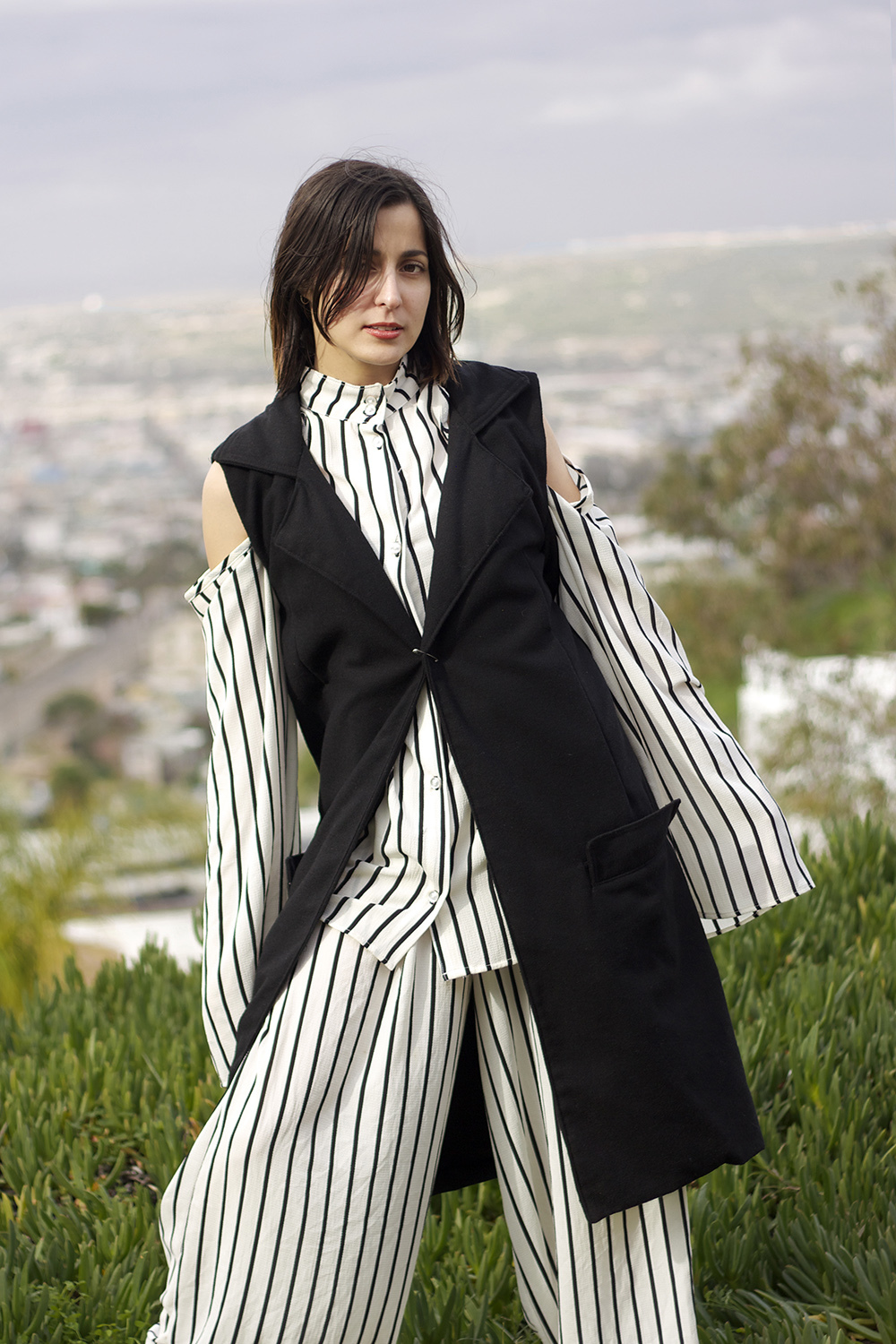
Giovana Bringas, 33
Where were you born? I was born and raised in Tijuana, B.C.
What do you do? I studied Communication Sciences, but I currently work with dogs. I’m a canine stylist, and I also work to [bring more] awareness about proper care and respect for animals.
What prejudices have you encountered in your profession? People who think that, if your work [entails] doing what you love the most it’s not [actually] a profession.
In your opinion, why is diversity so important for creativity? It shouldn’t be an issue. Because we’re all free and capable of doing what we love to do so long as we don’t hurt others.
What’s your responsibility to the younger talent who will [follow in your footsteps]? Specifically speaking about what I do, which is fostering [greater] respect towards animals, [it’s] that you should do your work with love, honesty, and intelligence [in order] to continue generating change; so that, with each generation, we’re better as a society.
At what point does a hobby become a profession? When you decide that what you like doing will become your profession, and the investment of time, creativity, and economic disciplines [becomes geared toward] sustaining what you’ve decided will become your lifestyle.
What’s the best part about living by the US border? The access to better practices, because it can’t be denied that in California there’s incredible benchmarking for all types of things, whether for business, gastronomy, tourism, etc. — including my pet grooming profession. The awareness of costs, styles, times, and types of clients has given me a new outlook on how to be competitive at an independent level.
And what’s the worst thing? There is no “worst” for an optimist. Everything’s fine.
What do you like most about your city? The food, the people, the music, the beer, and the dogs. [Laughs]
If you had to give some words of encouragement to the young people in your city, what would they be? Do what keeps you happy and stimulated, and always [make] it a priority to satisfy your expectations without hurting others [and] without letting anyone truncate your goals. Because once you find what you’re passionate about, you’ll do it with all the love in the world and that’s what will differentiate you from the rest.
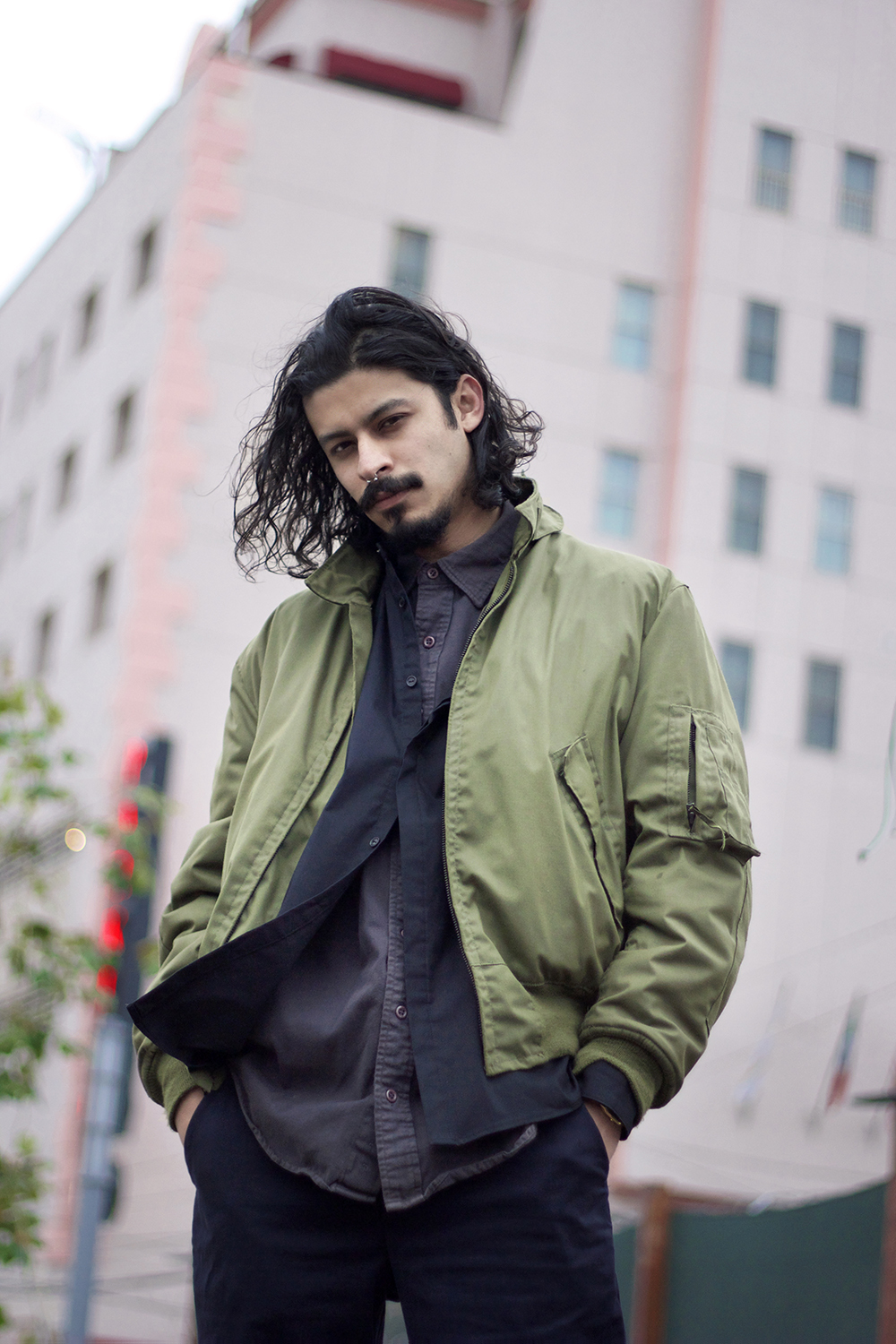
Josemar Gonzalez Lizarraga, 28, California
Where were you born? I was born in the US in the state of California. I live a cross-border life in the sense that I live partially between Tijuana and San Diego, [so I] cross the border regularly.
What do you do? I mostly work within the arts. In the US, I work as an artist for a non-profit organization [that] works with disenfranchised and immigrant communities, and uses photography and the arts as a means to communicate [their] stories. In Tijuana, I work in music and contemporary art as the director of a music and culture promotion organization called PASE. I’m also a member of the artist collective COYOTE, and I’m [involved] in two music projects: ‘Some Kind of Lizard’ and ‘Ethics.’ I went through a very rough experience that changed my life perspective, and I came to the conclusion that the only type of work that would make me feel good would be something where I could help other people. I found the organization that I work for now and I grew under the tutelage of [the photographer] Shinpei Takeda by working with immigrant and diverse communities. I was born in California but grew up in Tijuana, so [I’ve been] crossing the border since [I was very young] to go study. I grew accustomed to having a transient lifestyle — [moving] from one place to another. This greatly influenced my identity. Tijuana is a city with a lot of creativity and that inspired me to [work in] music and in contemporary art, but there aren’t enough platforms for the youth. I’m trying to create a real platform in Tijuana, where music and the arts can develop further through different channels.
What prejudices have you encountered in your profession? Working with immigrant and marginalized communities, I encounter a lot of prejudice. I’ve witnessed racism firsthand and have heard stories of people who came from places destroyed by war or poverty. The people in these communities are constantly treated as criminals and people refuse to help them. But the truth of the matter is that many [of them] don’t have the privilege to choose where to eat, sleep, or live. Suffering has no hierarchy.
In your opinion, why is diversity so important for creativity? Diversity is hugely important for creativity and for our developments as human beings. Collaborating with different people [makes any] creative work stronger, and [gives it] greater impact. I think we can all learn from one another as long as we can accept our differences in thought, and in how we identify [ourselves], and we can benefit from it. If we learn to collaborate and to accept [one another], we can evolve and achieve important things.
What’s your responsibility to the younger talent who will [follow in your footsteps]? My responsibility is to support, encourage, and continue developing different creative platforms for the next generations. There aren’t enough in Tijuana, and as a creator I think it’s my duty [to make more].
At what point does a hobby become a profession? I’m not sure that it’s a real hobby, but I think if we try enough to do what we like with passion and dedication, it can become a profession. Also, to think you can only have one profession is limiting, just like the idea that you can only have one hobby or that we can only learn [something] in school.
What’s the best part about living by the US border? I think the best is the cultural exchange that takes place between the cities of San Diego and Tijuana. This is the most transited border in the world, and the number of cultures from all over the world that converge in this geographic point help to enrich both cities.
And what’s the worst thing? The worst are the human rights issues [that happen] everyday at the border. Immigrants get stuck in Tijuana every day — they come from all over the world trying to find a better way of life. Mexico is a country that isn’t prepared to provide help for immigrants, [which is one] reason why many [people] attempt to cross [it], and if they don’t succeed they stay in Tijuana or end up dead along the way.
What do you like most about your city? The food, the music, and my friends.
If you had to give some words of encouragement to the young people in your city, what would they be? Through collaboration we can develop and achieve incredible things.
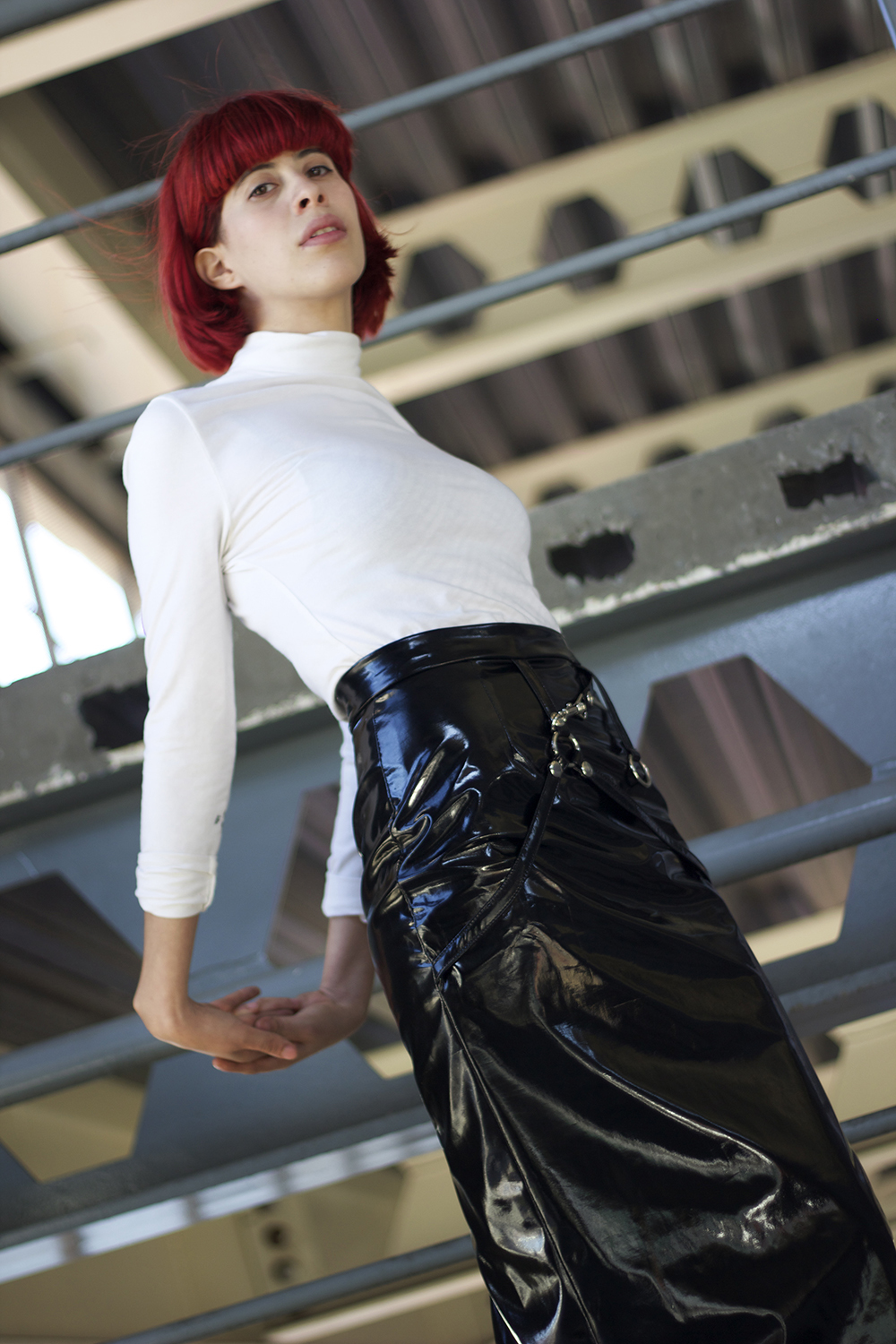
Carmen Isabel Lopez Herrera, 24
Where were you born? I was born in Tijuana, and you can see the [border] wall from my window. I’m still here.
What do you do? I have a handful of qualities [that are useless in a] capitalist world: I sing, I paint, I dance, I draw… Over time, I felt the call of ‘social consciousness’; I wanted to move the world, to hold it, to care for it. Things connected, and a degree in theatre appeared as an option in front of me.
What prejudices have you encountered in your profession? The [mentality that] all artists are useless because we don’t offer any services or labor.
In your opinion, why is diversity so important for creativity? In the current context, plurality and diversity are the multi-color warrior who generates aversion against the great hegemonic powers that are anxious to unify us and condition us into one great unilateral mass.
What’s your responsibility to the younger talent who will [follow in your footsteps]? To be watchful and inquire about all the structures that are given to us; to search and, with luck, find how to project myself towards someone else in an honest manner; to be— or at least, attempt to be—a form of resistance for the ones who come next. The responsibility [to myself] is my [same] responsibility [to another person]; we are not without the other.
At what point does a hobby become a profession? I want to say that the difference is relative to dedication, but in reality it’s only relative to the purchasing power. So if your hobby is [acting], and you can insert yourself in the market with it, then you’re a professional.
What’s the best part about living by the US border? The best is that we’re in limbo: a point which belongs to no one and everyone. It’s extremely multicultural. That’s beautiful; it’s like a microcosm.
And what’s the worst thing? The worst is relative to the worst of the social order. There’s so much happening here that nothing can mask the diverse nature of the human condition. There’s so many people here, thrown into Tijuana and Tijuana consumes them; it’s a place along the way that sometimes won’t allow you to leave.
What do you like most about your city? I like the city center. Everyone and everything converges there, and we learn a lot from living here. Everything is more evident here because it’s so concentrated.
If you had to give some words of encouragement to the young people in your city, what would they be? Learn a lot, keep your head up, show yourself, get to know yourself, and have a ton of fun.
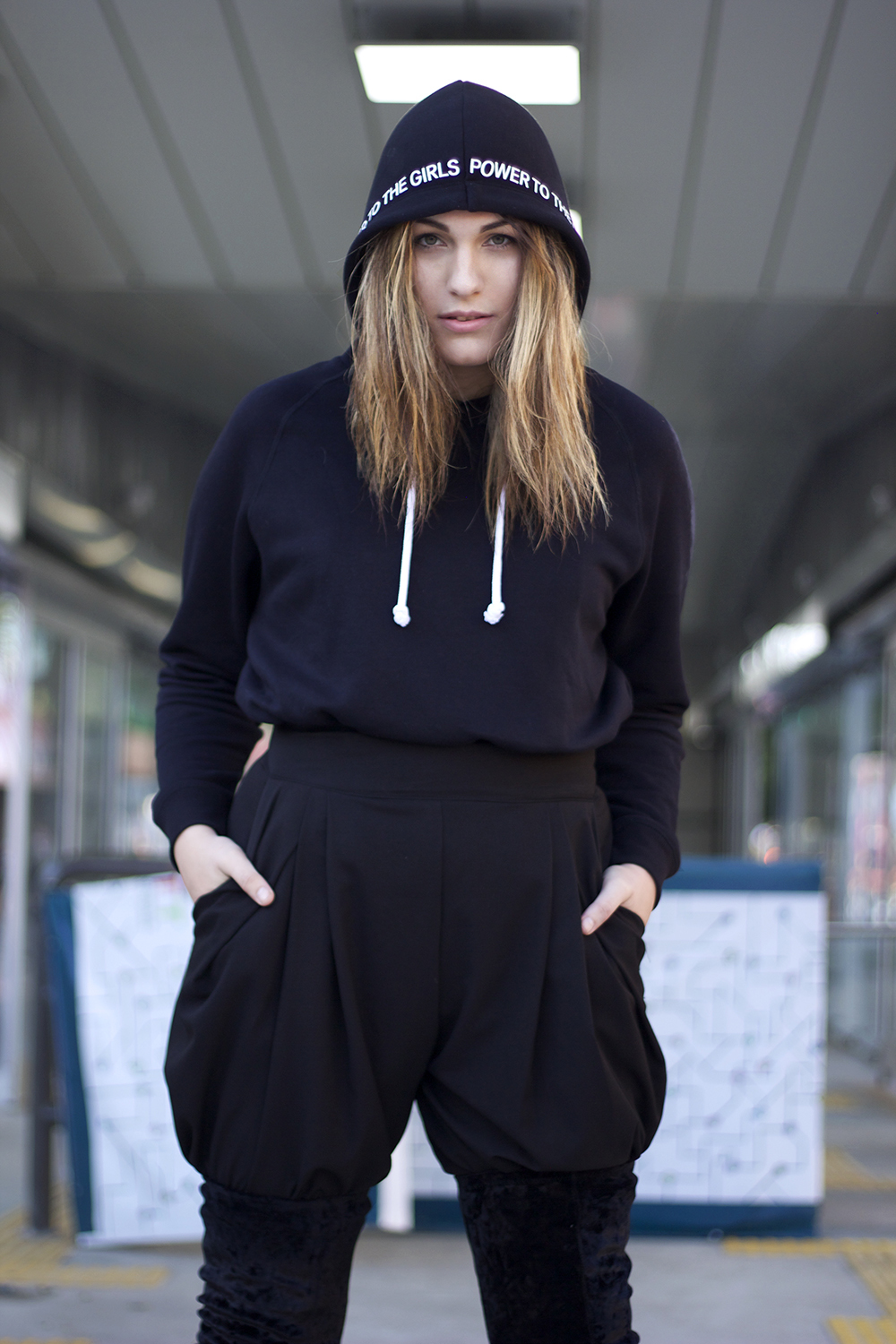
Miria Regina Ferreira, 22
Where were you born? I was born in Los Angeles, California, and currently live in Tijuana, B.C.
What do you do? I’m a nurse. I think my nature of wanting to help others lead me to choose this profession. It’s also a profession full of daily challenge — and I like challenges. On the side, I’m also a pro-gamer. I think I realized too late that I’d already had a profession [in the thing that was] my favorite childhood hobby.
What prejudices have you encountered in your profession? I’m a transgender girl, so I [face prejudices] when I apply or look for a job. There are people [who are] so stigmatized that you [can be] rejected from a job regardless of your work experience, just for the simple fact [that you’re a transgender person. It can even happen] once you’re already employed because it’s “uncomfortable” for other employees to have to work with “someone like that,” so much that it pisses them off and shakes them. When people go low, I go high.
In your opinion, why is diversity so important for creativity? I think [diversity is] very valuable and very necessary to educate future generations. In this way, the young ones grow up without taboos or stigmas. It’ll help [make it] so that being different stops generating unease, and instead [it expands] our minds.
At what point does a hobby become a profession? You find yourself traveling to all these tournaments, self-financing everything just for pleasure [in order to do] something you enjoy. You meet so many people, you place high, or even win tournaments… And then brands/sponsors approach you, and voilà! You’re sponsored and [able to] travel throughout the world for video game tournaments.
What’s the best part about living by the US border? For me personally, it’s the shopping. You can go to all these retailers we don’t have in Mexico, and L.A. is also just around the corner.
And what’s the worst thing? The OVERCROWDED traffic. I work in San Diego, [so] I leave at 2:00PM and won’t arrive at my apartment in Tijuana until about 5:00PM. It’s terrible.
What do you like most about your city? The beer and the cuisine! Before living in Tijuana, I never loved beer, but lo and behold there’s some really delicious ones here and I ended up loving it. The food goes without saying.
If you had to give some words of encouragement to the young people in your city, what would they be? My door, my cell phone, and social media are always open 24/7 to any of my relatives or friends, or anyone who needs to talk. I have coffee and tea, ice cream, and perhaps a beer, plus a pillow if you need one. I will always be here and you’ll always be welcome! I’m trying to show there’s always someone listening and [there to] provide encouragement.
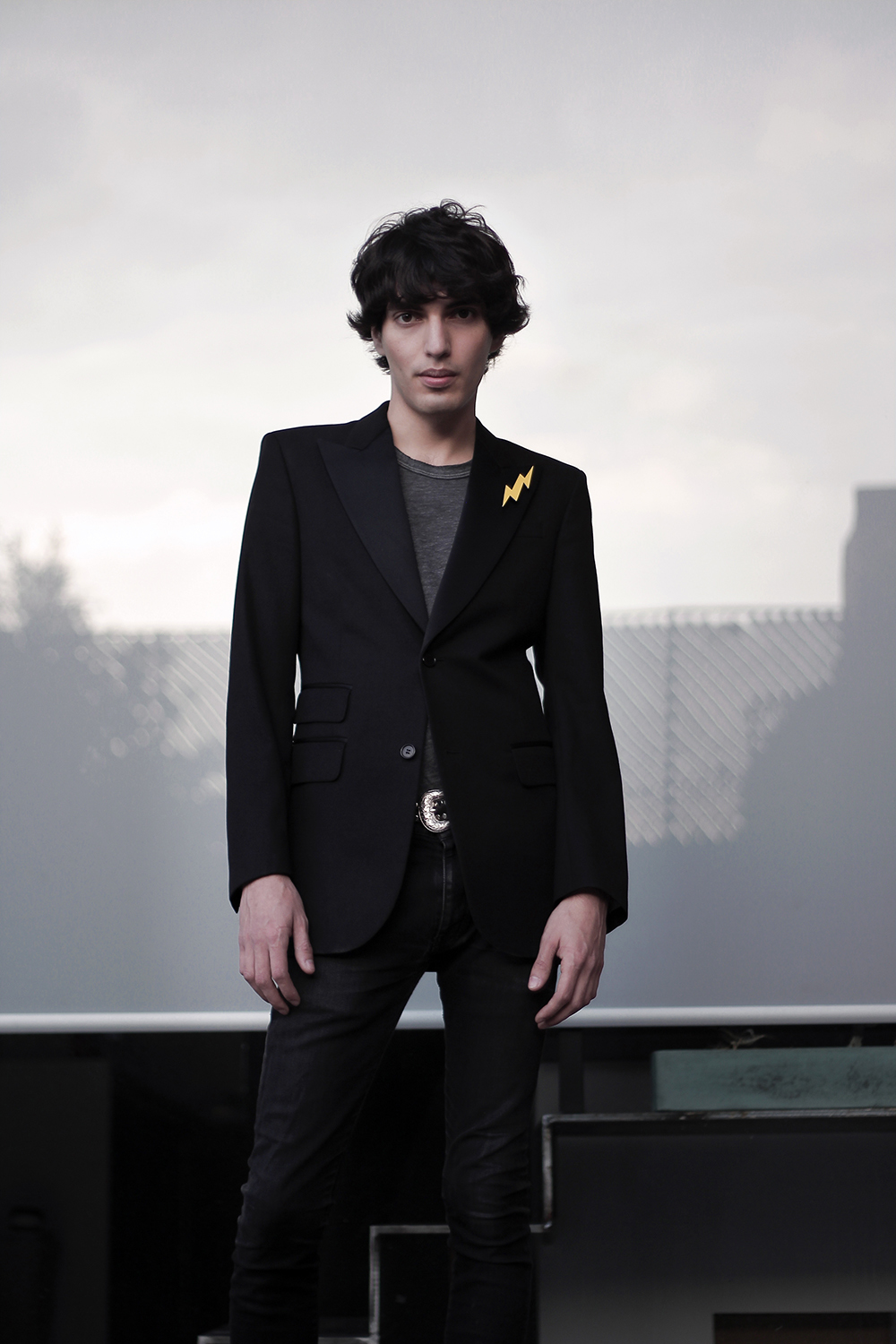
Damian Fry, 26
Where were you born? I was born in Ensenada, B.C., but I grew up in Tijuana, where I’ve lived most of my life. I currently live in Chula Vista, CA, about 15 minutes away from the Tijuana border.
What do you do? I’m an artist. My main platforms for expression are music — the interpretation and representation of personal and social reviews — and anti-humor. I was interested in music since I was little, but it wasn’t until I was 13-years-old that I started playing guitar and came in contact with the local music scene and the DIY community.
What prejudices have you encountered in your profession? Being a male of economic middle class with light skin, I’ve always been in an advantageous position amongst my peers. In the growing Tijuana music industry, I’ve on many occasions witnessed classist and elitist behaviors [when it comes to] accessing certain sectors of the artistic community, [especially in] production and broadcasting media.
In your opinion, why is diversity so important for creativity? I think cultural diversity is key for the development of a society [in which] individuals are empowered to lead fulfilling, autonomous, and self-managing lives.
What’s your responsibility to the younger talent who will [follow in your footsteps]? To promote the creation of new spaces that guarantee access to new talent so they can develop fully.
At what point does a hobby become a profession? I think it’s the moment when you realize you’ve invested large sums of time and energy into one activity, and you need to decide between quitting what you love or giving yourself to it completely.
What’s the best part about living by the US border? Tijuana is the cultural funnel of Latin America. All the frustrations and dreams of many cultures concentrate here. And in this very diverse and volatile environment, you find the fertile territory for a true artistic movement.
And what’s the worst thing? The violence and the nefarious activities that plague the city because of the huge sums of money and drugs that cross the region.
What do you like most about your city? The people.
If you had to give some words of encouragement to the young people in your city, what would they be? Do what you love, and leave something for the others.
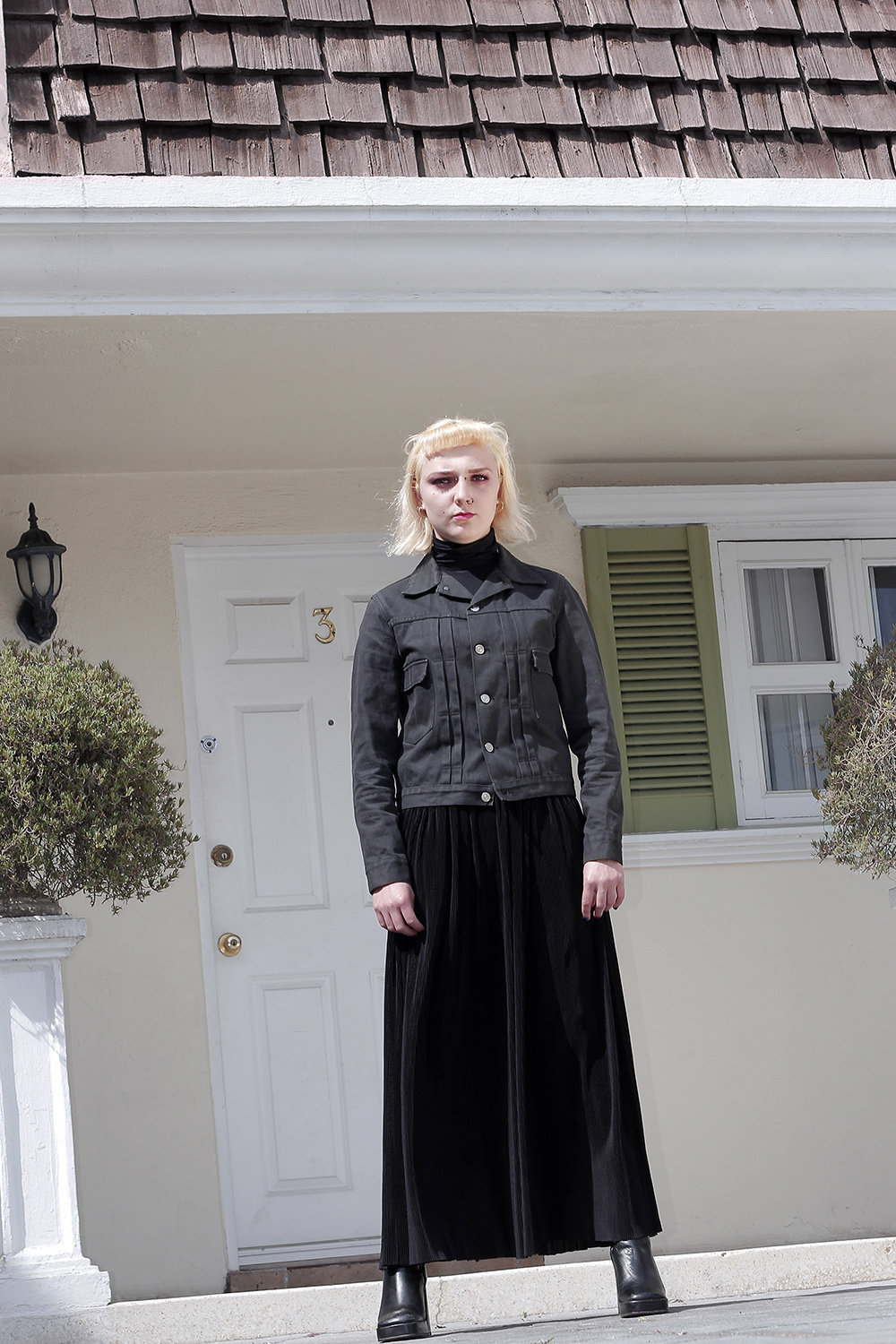
Shy Crews, 19
Where were you born? I was born in Obregon, Sonora, a town full of nice people who, regardless of technological advances, still keep to their roots and natural spaces, [a place] of which I have happy memories. But now I live in Tijuana, [which is] my second home since my earliest years of life.
What do you do? Right now, I take pleasure in writing any type of literary expression, whether poetry, philosophy, drama, etc. Thanks to my passion for the arts, I met two very important people in my artistic life two years ago. I always wondered if I could be part of a band, [and a little while] after [we combined] my writing and their talent, we started a band where I can express my thoughts through lyrics and music. I never really played the drums, but always liked the idea of learning how to play them, and I truly feel eternally grateful for the opportunity.
In your opinion, why is diversity so important for creativity? I think [the importance of diversity] is reflected in the personality of each member [of our band]. Even if we play music that motivates us, we each have different musical tastes and personalities, and that’s reflected in our songs.
What’s your responsibility to the younger talent who will [follow in your footsteps]? I think that even, if I don’t encourage people to choose my vocation, I do want them to have a good time when they see us on stage. To make them see that as people, we feel and live just like they do, but mostly [I want] to make them feel they’re not alone.
What’s the best part about living by the US border? That you have a greater chance for advancement as a band when you play with foreign bands. There’s no disadvantage there; it’s important to always use your tools.
What do you like most about your city? The people. Besides being an excellent geographical point, the times I live in lend themselves to a variety of genres, ideas, and cultures, [all of] which help create an original and diverse sound.
If you had to give some words of encouragement to the young people in your city, what would they be? As long as there’s an idea in my head, and as long as I’m alive, I’ll fight to be the voice of anyone who wishes to be heard. We weren’t born by chance, and we must contribute our ideas so that together we can make radical changes through our talents.
Credits
Interviews by Gerardo Carrillo
Photography by Vanesa Capitaine
Styling by Gerardo Carrillo
Translated by Liz Godoy
